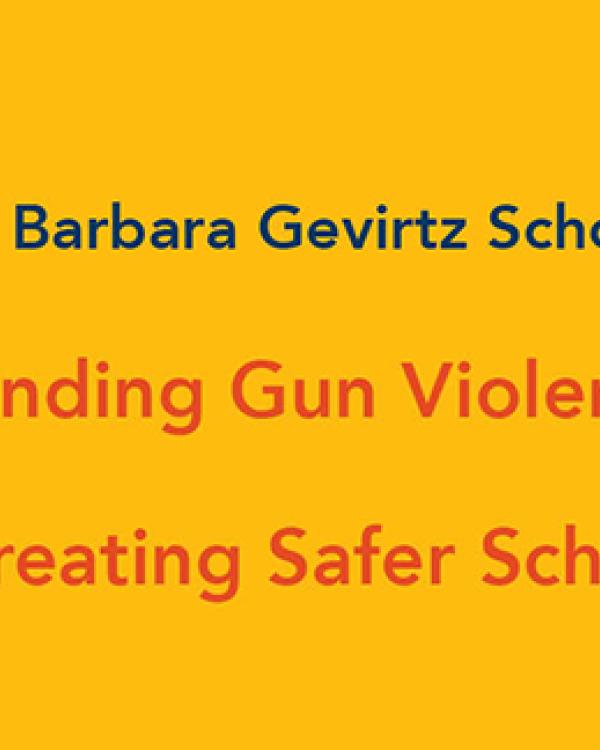
The Gevirtz School is grieving the loss of so many children, youth, and adults to gun violence. We have long advocated for national reforms that would help prevent gun violence in the United States. We have also been a leader in providing interventions to help after the trauma of a shooting, both in the immediate aftermath of the violence and in the long-term healing and community resilience process. Thus, we are outraged and devastated that national reform has not adequately addressed gun violence, safe schools, and racist acts of violence while failing to ensure the safety of vulnerable children and communities. We must do more.
As a caring community of scholars and educators, we remain adamant that the country needs to find the political will to make the changes we know are critical to our safety. We must not turn to harmful practices such as more security, locks, cameras, or gates. These have failed over and over again. We must commit to caring communities where every person is looked after and safe, with mental health supports and services for those who suffer from mental health challenges.
For more than a decade, we have advocated for implementing a public health model to prevent gun violence in the schools and communities in the US, such as efforts in 2012 (following the tragic deaths at Sandy Hook Elementary School) and in 2018 (following the tragic deaths at Marjory Stoneman Douglas High School). Two of the School’s faculty—Michael Furlong and Shane Jimerson—were among the 19 scholars nationwide who drafted the Call for Action to Prevent Gun Violence in the United States of America, updated this month. Over 80 national organizations endorsed that statement, including the American Psychological Association, the American Federation of Teachers, the National Education Association, and the National PTA.
Our scholars also work locally to inform national resources in violence prevention. For example, CommUnify is leading a project, recommended for funding by the California Board of State and Community Corrections 2022-2025, to partner with the Family Service Agency, Fighting Back Santa Maria Valley, and Gevirtz researcher Jill Sharkey to provide and evaluate holistic support and evidence-based interventions proven to be effective in preventing or deterring community violence among youth. Another example is the Santa Barbara Resiliency Project, which features the work of Gevirtz School professors Maryam Kia-Keating and Miya Barnett. In partnership with the Santa Barbara Neighborhood Clinics and CALM (Child Abuse Listening Meditation), the researchers tested three preventive interventions targeting children and families as soon as babies are born as a way to curb negative impacts of Adverse Childhood Experiences (ACEs).
These and other programs focus on transforming systems to support and nurture students, family members, and the community to prevent violence and create resilient communities. We are committed to garnering grants to support our local community while informing broader policy and practice.
Finally, the Gevirtz School would also like to share resources from the National Association of School Psychologists and the National Child Traumatic Stress Network:
Responding to a Mass Casualty Event at a School: General Guidance for the First Stage of Recovery
Responding to School Violence: Tips for Administrators
Talking to Children About Violence: Tips for Parents and Teachers
Thoughts and prayers are simply not enough. We plan to continue leading the country toward evidence-based policy change and greater safety for all.
The Gevirtz School